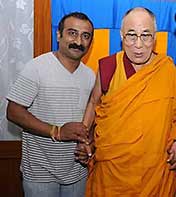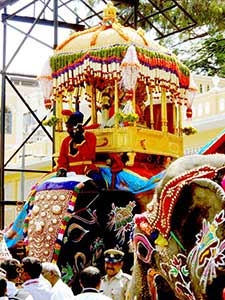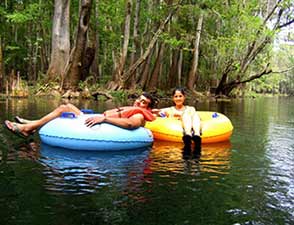Medical Electives

Medical student electives offered at GGSM Hospital are structured for international students helping them to understand different aspects of Indian health care, both at primary (rural) and tertiary (urban) level. This elective will be ideal for student leaders interested in global health and health care in developing nations, public health, as well as diseases commonly encountered in the tropics. This elective will also provide an ideal opportunity to travel and experience the rich cultural heritage of India.
Apart from medical electives we also get students from Somalia, Maldives, Bahrain, Senegal, Ethiopia, Djibouti, Who have studied in China medical universities like "Dalian Medical University, Jilin University, Hangzhou Norma University, Norman Bethune Health Science Centre of Jilin University, Changsha Medical University, and University of Somalia." To do clinical observer ship (Internship Programme) after their fifth year of medicine for one year, before taking their final year exams. We also get students after graduation and post graduation in china to do electives in different departments. For any further clarification or query can directly contact by any of the following emails.
[email protected], [email protected], [email protected]
GGSM hospital is situated in Mysore; the princely state from pre-colonial era known for its history and hospitality. Being a tertiary center and situated in this semi-metropolitan town, GGSM hospital handles all trauma, 24-hr emergency service, critical care needs including all medical and surgical specialties and sub-specialties.

Highlighting fact is its reputation being the largest referral center for rural and urban poisoning (mainly organophosphates), snake bite, neurological disorders, and infectious diseases catering rural population around the town of Mysore.
Elective students rotate in different specialties in this 250 bedded hospital which also include a 25 bedded intensive care unit (ICU). Students round with fellows and faculty in the ICU, and participate in daily ward/teaching rounds including bedside teaching, outpatient clinics and seminars. Didactics are excellent, being taught by faculty, some from the city's two medical schools. The Hospital is a tertiary care facility with specialties that include ENT, Ophthalmology, Radiology, Nephrology, Surgery, Pediatrics, Neurosurgery and Neurology. Operative room experience with hands-on experience is part of the curriculum. Students are encouraged to visit various rural health camps organized by the hospital for underprivileged and non-insured patients.
Elective Description: The rotation will be for a total of 4 weeks.
 First Week - Medical and surgical Intensive Care Unit (ICU): This will provide a fascinating experience, since a lot of the causes of Indian ICU admissions rarely happen in western environment. Organophosphate poisonings, tropical diseases including tuberculosis, snakebites, hanging and drowning are few emergencies you encounter most of the time. Since smoking and urbanization have huge impact on environment, admissions to ICU also comprise of COPD exacerbation, asthma, industrial hazards, stroke and myocardial infarctions. Diabetes and hypertension have reached epidemic proportions in India leading to hypertensive urgency and ketoacidosis comprising few common causes of critical care admission.
First Week - Medical and surgical Intensive Care Unit (ICU): This will provide a fascinating experience, since a lot of the causes of Indian ICU admissions rarely happen in western environment. Organophosphate poisonings, tropical diseases including tuberculosis, snakebites, hanging and drowning are few emergencies you encounter most of the time. Since smoking and urbanization have huge impact on environment, admissions to ICU also comprise of COPD exacerbation, asthma, industrial hazards, stroke and myocardial infarctions. Diabetes and hypertension have reached epidemic proportions in India leading to hypertensive urgency and ketoacidosis comprising few common causes of critical care admission.
Second Week - Operative Room/Surgical rotation: Most common surgical admissions are appendicitis; renal/gall stone; thyroid, bur-hole surgery, intestinal perforation, bone fracture fixation, obstetrics and gynecological emergencies. The theatre list some days might be long and you are allowed to stay as long as you want depending on your endurance. If surgeons are convinced of your commitment, you might have extensive hands-on experience in the operative room.
Third Week - Outpatient clinics: Orthopedic/OBGYN/Pediatrics/Psychiatry/Neurology/Cardiology/Internal medicine: Outpatient clinics comprise new and follow up patients for various medical conditions from the above specialties. Students will have exposure to see a variety of infectious diseases not limited to tuberculosis, hepatitis, dengue, malaria, gastrointestinal infections, typhoid or cholera. Polio was rampant in India and you might see the consequence of this devastating condition in clinics.
Fourth Week - Wards: Trauma, postoperative cases, infections, neurovascular conditions, burns and various common medical conditions are admitted on the wards and students can play a significant role in team management of these disorders.
- Students can choose a specialty of their choice to rotate during the last week.
- Students also an have option to participate in short research projects during their rotation.
- Students also an have option to participate in short research projects during their rotation.
- Students also an have option to participate in short research projects during their rotation.
- The first day at the Hospital will be used to orient you to your new surroundings and the culture. The weekends are free for travel and to explore the town and surrounding area.
"Mysore is often referred to as the cultural capital of the south. The city boasts some of the best Yoga schools in the world. The city is extremely safe for tourists and foreigners. Accommodation is generally very affordable and information can be found on the web. If requested, the hospital can help with arranging accommodation and travel to local cultural attractions and sites of interest."
Getting there: Bengaluru (Bangalore) which is a 3 hour drive from Mysore has the closest international airport. There are direct flights from Bangalore to Mysore. Regular trains and bus connect Mysore to Bangalore.
- Yoga
- Mysore Palace

- Jaganmohan Palace
- Bridavan-Gardens(KRS)
- Bandipur National Forest
- Ooty Hill Station
- Saint Philomena Cathedral
- Chamundi Hills
- Mysore Zoo
- Ranganathittu-bird-sanctuary
- Srirangapatna
A non-profit trust is closely associated with the activities of the hospital and help patients in providing economical and charity support for deserved cases. The Hospital Trust make every effort to provide affordable care to those who have requested it by discounting fees and sometimes waiving bills. The doctors are very welcoming of students, and since most of the patients couldn't speak English, and international medical students don't speak the native language "Kannada", the doctors provide translation for most consultations so that students can easily comprehend what is going on. The hospital also runs a postgraduate training program accredited by the National Board (DNB).
Advantages of this hospital elective
- Flexible year round schedule and you can start anytime or day of the year.
- Economical fee structure for the electives and inexpensive cost of living in this town.
- Hospital can help in arranging accommodation, travel arrangements,
trip planning and provide other useful tips to make their stay a pleasurable experience. - Students have the option of planning their rotations even though hospital has a structured medical elective schedule.
Cost of the program
The cost of the 4-week course is £100 or €120 or $160 per week. This fee covers:
- Admission and application fees
- Verification of visa, passport and background check
- 4-week elective program at GGSM Hospital including language translation
- Everyday lunch in the nursing canteen
- Rural health camp visits to the villages
- Transfer from Mysore railway or bus terminal to their accommodation of choice on arrival or departure
- Research credits and participation in existing projects
- Issue of Certificate after successful completion of the medical elective
- Dr. H.V. Santhrupth
Cell +91 98451 26036
[email protected]
